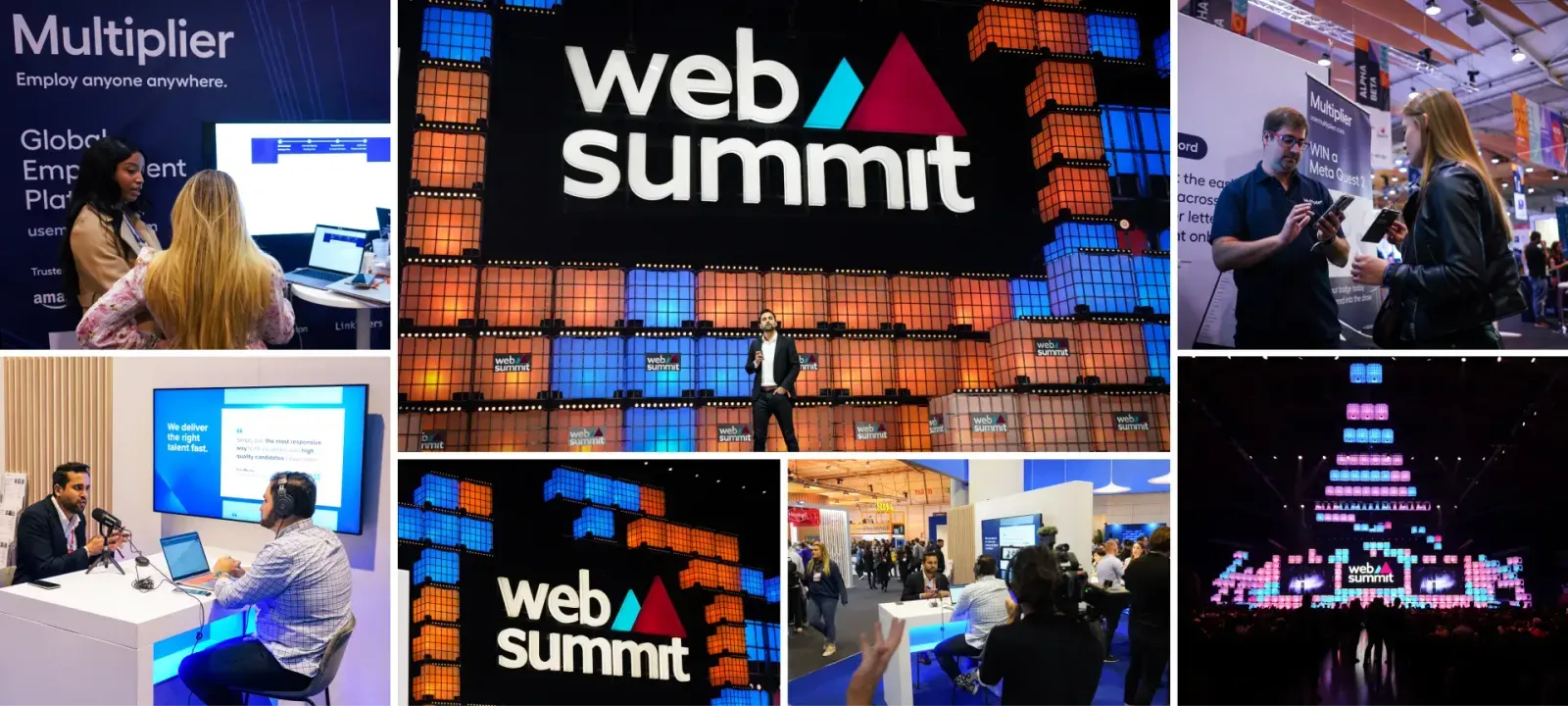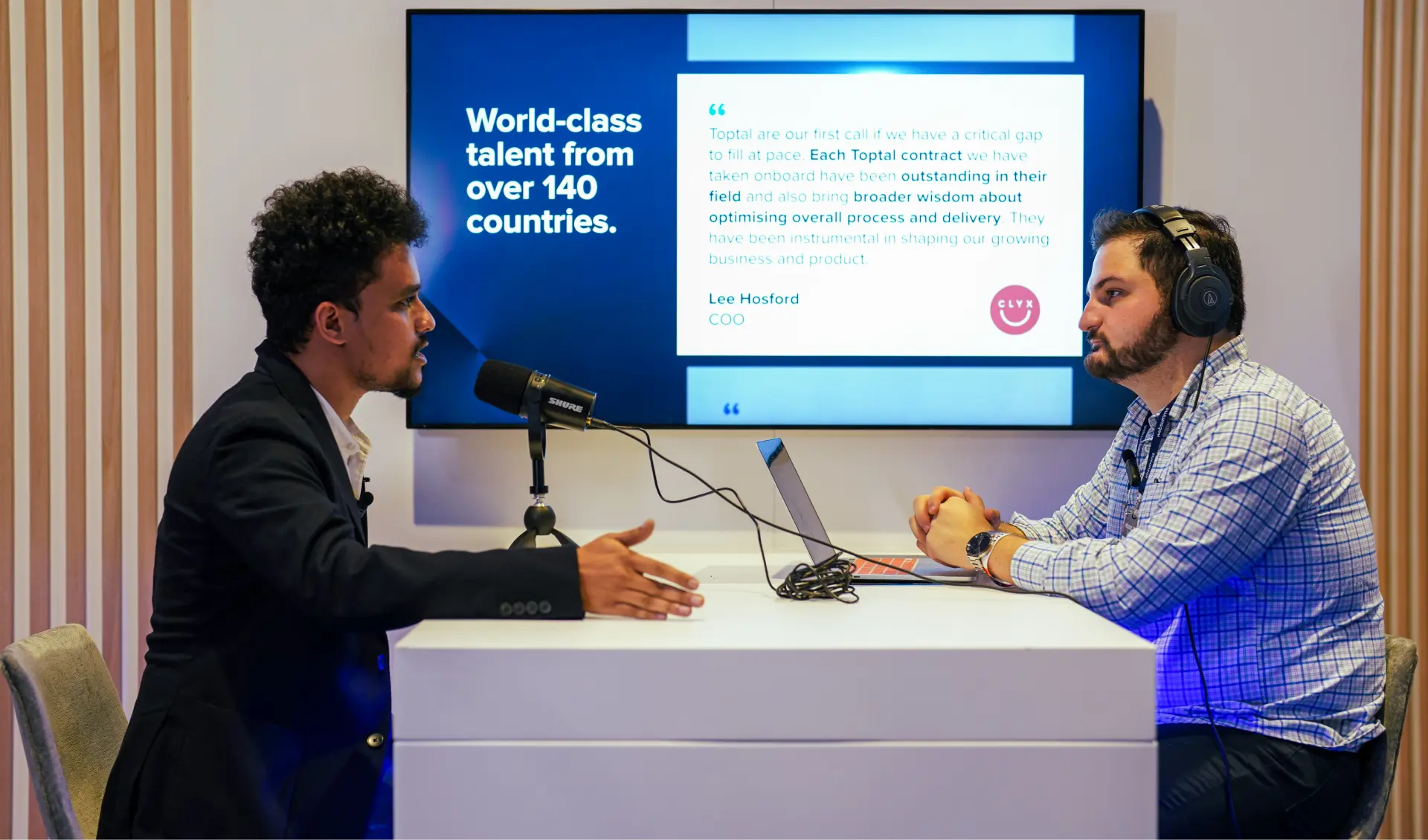“Where tech meets the world.” That’s how the founder of Web Summit, Paddy Cosgrave, described the event, which took place in Lisbon – the capital of Portugal. The Summit was host to many leaders from a wide-spread array of sectors, including tech, sports, politics, and entertainment.
Also known as the world’s largest technology conference, the event drew over 71,000 attendees from 160 countries, the largest tech gathering since the COVID-19 pandemic. The event brought together startups, investors, speakers, and other attendees to discover, network, and learn more about the future of technology.
Multiplier Listed as One of the “World’s Most Exciting Early-stage Startups”
For startups, the most represented industries included SaaS, AI, finance, and eCommerce. The break-out session at the event featured startups with immense potential, and amongst these bright innovators, Multiplier was spotlighted as one of the “world’s most exciting early-stage startups.”
Our CEO, Sagar Khatri, talked about Multiplier’s vision as a company and the way it is helping businesses seamlessly employ international teams and enter new markets. He also spoke on tackling the problem behind the talent crunch and how Multiplier is helping organizations build teams anywhere in the world without setting up an entity.
“No matter where you’re based as an organization, it cannot determine which talent you can have access to. Similarly, where you are based as a talent would not determine which opportunities you can have access to,” said Khatri.
Overall, the outlook on startups was positive at the event with Fred Dustin, founder of Stride.VC optimistic about the state of startups in the current scenario. He admitted that startups are better entrenched to challenge the status quo in these turbulent macroeconomic conditions. Moreover, Dustin reasoned that small companies steal the march against incumbents because their small, nimble, and agile teams can adapt to changing conditions.
Other Front-of-mind Takeaways from the Event
Remote Working’s Influence on the Future of Work
As pointed out by our CEO, Sagar Khatri, “The old ways of working are not working; you need to find ways where you can now find good employees, retain them, and grow your business faster.” This applies to Mercedes, who are trying to join the train of technological innovation.
The Web Summit saw Toto Wolff, team principal and part-owner of the Mercedes F1 team, and Oliver Steil, CEO of TeamViewer, chiming in to talk about the Mercedes-Teamviewer partnership. With this collaboration, TeamViewer is set to help Mercedes with the remote management and monitoring of racing cars through remote engineers. Toto Wolff was optimistic that their new technology ally would help Mercedes turn things around after a rather disappointing 2022.
Introspection of VC Funding
Another significant topic of discussion was the state of VC funding in the tech industry today. Sabina Wizander, Partner at Creandum, spoke on the insobriety of the VC market and how things changed since she left the market in 2016 and came back in 2021, as huge deals were getting closed in less than 48 hours, thus leading to a lesser time “to look under the hood.”
However, the deal values have noticeably decreased in 2022 with a return to solid business fundamentals and unit economics. In short, the venture capitalists agreed that the era of wild valuations is now over.
Metaverse
Metaverse made inroads into the Web Summit when Lego Group’s Julia Goldin brought to the fore how the Metaverse should be conceived and built with children in mind. The Chief Product and Marketing Officer noted that web 2.0 was designed with few safety protocols for children. However, the Metaverse should be designed so that children can participate in this virtual world and ensure their right to play in space. She added that this was the goal that Lego has in mind for the virtual world.
AI’s New Horizons
AI, as a technology, was also one of the most talked about technologies of the event. Amazon’s Senior VP and head scientist for Alexa, Rohit Prasad, said that Alexa, a prominent face of AI technology, can do much more than its current capabilities.
He said, “Alexa is not just an AI assistant – it’s a trusted advisor and a companion,” and the upcoming upgrade will enable it to determine user patterns, based on which it will provide helpful guidance and suggestions. While Amazon explained how it would be integrated into people’s daily lives via “ambient intelligence,” other companies want to take it further by combining it with other technologies, such as Big Data and Machine Learning.









